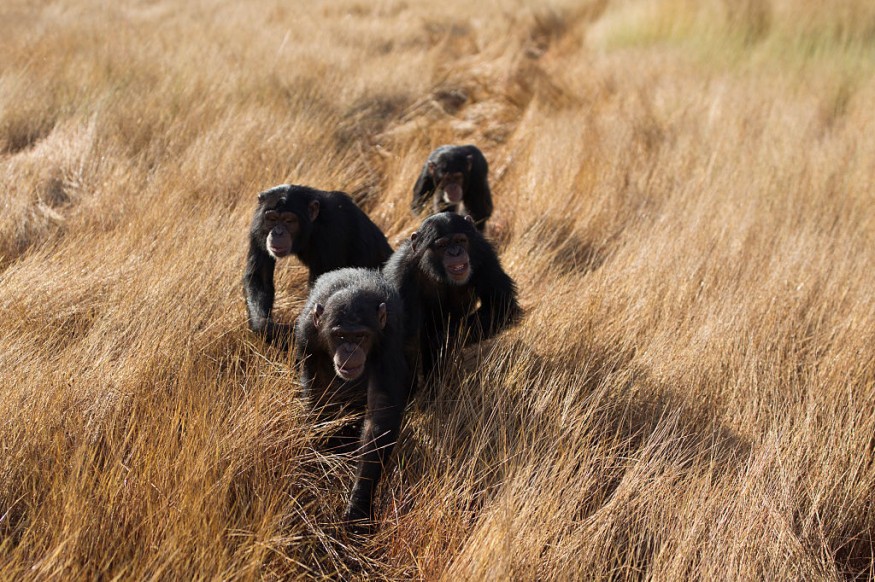As humans grow older, they lean towards smaller circles of known and trusted friends instead of actively seeking new ones. According to a new study, this behavior is not limited to homo sapiens - finding the same behavior in chimpanzees.
Chimps (Pan troglodytes) are known to be humans' closest living relatives in the animal kingdom, and understanding this behavior could help scientists identify a healthy aging process as well as the underlying mechanisms behind this behavioral change.
The new study, led by a team of primatologists and psychologists from the Human Evolutionary Biology Department at Harvard University, is published in the journal Science on Friday, October 23.

Active Selection of Social Circles with Aging
The Harvard researchers conducted more than 78,000 hours of observations from 1995 to 2016, monitoring 21 male chimpanzees and their social interactions. Chimps were aged 15 to 58 years old and were based on Uganda's Kibale National Park. The study revealed what might be the first evidence of active selection of social circles with aging, found in nonhuman subjects.
RELATED: Friends or Family: Who Makes Us Happier?
Researchers explained that the study focused on male chimps only because of their propensity for stronger social bonds and also displays them more prominently and more frequently compared to their female counterparts.
Running through the data, researchers found the similarity between chimpanzees and humans as both species age. As the chimps in the study grew older, they also spent more time - in their case, grooming - with their fellow chimpanzees that they have previously developed mutual relationships with. However, younger chimps who had one-sided relationships also saw one-sided grooming later on in life.
Additionally, older male chimpanzees were found to spend more "alone time" but periodically maintained interactions with established social partners - and their "friends" exhibiting similar behavior. Researchers identified the tendency of chimps - and humans - to go for peace and quiet as positivity bias.
Social Behavior Similarities Between Chimps and Humans
"The really cool thing is that we found that chimpanzees are showing these patterns that mirror those of humans," commented Alexandra Rosati, an author in the study and now an assistant professor of psychology and anthropology at the University of Michigan, as reported by The Harvard Gazette.
Rosati explained that future studies might be able to determine further if this behavior actually corresponds to a normal or successful aging route species take, adding that this work could work as a baseline or a model for subsequent research.
"More humans are living longer than in the past, which can change the dynamics of aging," Rosati added. Rosati is a visiting fellow in Harvard's Human Evolutionary Biology Department, together with other Harvard alumni - Zarin Machanda, now with Tufts University; Melissa Emery Thompson now at New Mexico University; Lindsey Hagberg, pursuing medicine at Washington University; and Richard Wrangham, founder and co-director of the Kibale Chimpanzee Project.
Wrangham noted that though chimps are smart, they do not understand death and that they're going to die, unlike humans. He added that there might be something else that would explain this behavior surrounding their relationships. Understanding this would allow researchers to better understand whether notions applicable to humans would also apply to chimps.
RELATED: Mutations That Affect Aging May Be More Common Than Previously Thought
Check out more news and information on Prosocial Behavior in Science Times.
© 2026 ScienceTimes.com All rights reserved. Do not reproduce without permission. The window to the world of Science Times.












